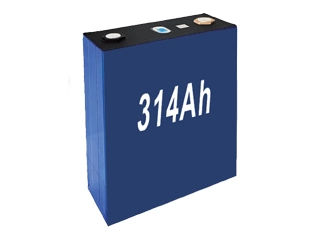Revolutionizing Energy Networks: The Impact of Utility Solar Storage
As the world increasingly embraces renewable energy sources, utility solar storage has emerged as a game-changer in the sustainability revolution. With its ability to harness and store solar energy efficiently, this innovative technology is transforming the way we use and distribute power. In this blog post, battery energy storage system suppliers will delve into the significance of utility solar storage and its impact on energy networks. Let's explore!
A Paradigm Shift in Power Supply
With the growing demand for clean energy solutions, utility solar storage is playing a significant role in transforming energy networks. Traditionally, electricity was generated in centralized power plants and then distributed through transmission lines. However, utility solar storage systems enable a decentralized approach, allowing excess solar power generated during peak hours to be stored for later use during low-demand periods. This shift not only helps in better utilization of renewable energy but also improves the overall reliability and stability of the grid.
Enhancing Grid Flexibility and Balance
One of the biggest challenges with renewable energy sources like solar power is their intermittent nature. Utility scale battery storage acts as a buffer, enabling a more consistent supply of electricity regardless of weather conditions or time of day. By storing surplus energy during times of high solar generation and releasing it during peak demand, energy networks become more resilient and capable of accommodating fluctuations in solar energy production.
Reducing Reliance on Fossil Fuels
The integration of utility solar storage into energy networks is gradually reducing our dependence on fossil fuels. By maximizing the utilization of solar energy, utility-scale energy storage systems can significantly reduce the need for backup power from conventional sources. This not only lowers greenhouse gas emissions but also helps mitigate the impact of volatile energy prices. As utility solar storage becomes more widespread, the transition towards a cleaner and more sustainable energy future becomes increasingly attainable.
Empowering Local Communities
Utility solar storage plays a vital role in empowering local communities to take charge of their energy consumption. By installing battery storage systems alongside solar panels, homeowners and businesses can store excess electricity generated during the day and use it during peak periods. This level of independence ensures a more stable and consistent energy supply while substantially reducing reliance on the grid. Furthermore, during power outages or emergencies, utility solar storage can provide a reliable backup, enabling critical facilities such as hospitals, schools, and emergency services to continue operations.
Utility solar storage is revolutionizing energy networks by offering unparalleled flexibility, sustainability, and resilience. Its ability to store surplus solar power for later use is transforming our approach to energy distribution. By incorporating utility solar storage into our infrastructure, we can make significant progress toward reducing our carbon footprint, enhancing grid stability, and empowering local communities. As we continue to explore cleaner and more efficient energy solutions, utility solar storage will undoubtedly remain at the forefront of revolutionizing the way we harness and utilize renewable energy.





 EN
EN
 fr
fr  de
de  es
es 


